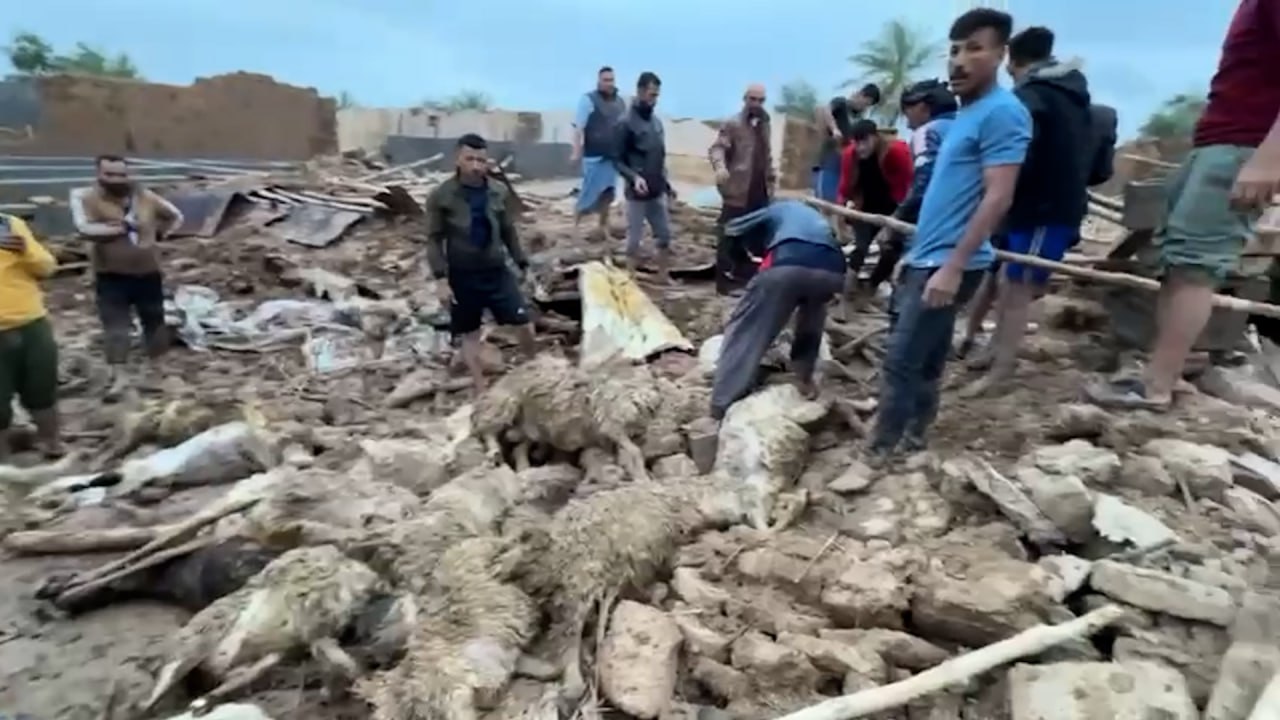Iraqi Kurdistan’s tourism sector ‘hit the hardest’ by lockdowns

The empty tourist resort of Kunamasi, Iraqi Kurdistan, April 2020. Photo: Rudaw
HEWLÊR-Erbil, Iraq’s Kurdistan region,— In a normal year, the Eid holiday brings a surge of tourists heading for the hills in Iraq’s north, fleeing the summer heat for cooler climates. But 2020 has not been a normal year.
Instead of serving crowds of holiday goers, tourist resorts in Iraqi Kurdistan Region are deserted, leaving many out of work and impacting a key sector of the region’s economy.
Following the coronavirus pandemic and subsequent lockdowns, tourism sites in the Kurdistan Region have taken a huge hit to their revenues.
“The greatest damage has occurred to the tourism sector,” says Nadhif Ali, the tourism director of Amedi district in Dohuk province.
Amedi, a tree-lined mountain getaway near the Turkish border has around 30 resorts – all are closed amid coronavirus fears. Their owners say the loss in revenue is mounting.
One resort in Rawanduz, 110 kilometres north of Erbil, usually sees all 120 of its villas booked for Eid ul-Fitr, which marks the end of the holy month of Ramadan.
This year, only 15 have been booked.
“We have lost $600,000 in revenues since Newroz due to corona,” Hamad Amin Hassam, administrator of Shingelbana Resort, told Rudaw English, referring to the Newroz holiday which marks the beginning of spring.
Another resort owner told Rudaw English that his business was losing $2,000 to $2,500 in revenue every day.
The shutdown also places many workers in the service industry out of jobs. Erbil, the Region’s capital city, is home to nearly 10,000 foreign workers from Bangladesh, Nepal, India and Philippines who typically work for day rates in service jobs.
For those low-wage workers, earning $500 per month is just enough to survive – but each passing day under lockdown means another day out of pocket.
The Kurdistan Region was placed under total lockdown in early March, with schools, businesses, and public life closed to prevent the spread of COVID-19, which has infected 532 people according to figures from the Kurdistan Regional Government (KRG).
With public life effectively suspended, popular tourist sites have been emptied under a raft of containment measures, including a ban on inter-city travel.
On May 10, tourism spots were allowed to reopen to receive holidaymakers – but pointing to family gatherings a major driver in spreading the virus, authorities once again ordered a 72-hour lockdown for the Eid al-Fitr holiday.
“We had 60 employees feeding 60 families and that is all gone,” Ibrahim says.
The Kurdistan Region is a popular destination for tourists, especially Iraqis looking to escape the summer heat. It is home to a wide geographic diversity that spans from wildlife-filed forests to skiing in the Zagros Mountain range that borders Iran.
Erbil alone boasts over 500 archaeological and historic sites; including its 8,000 year old Citadel, which claims to be the oldest continuously-inhabited city in the world; the Mudhafaria Minaret, and the Qayassaria Bazaars.
A decade ago, economic hopes were high in the Kurdistan Region, a haven of stability in a restless neighborhood. An economic boom saw investment pour in, and construction projects flourish from 2005 until 2013 – a period when Iraq was in turmoil.
But in 2014, chaos ensued after the emergence of the militant Islamic State (ISIS), leading to financial crises in Baghdad and Erbil that dramatically impacted the country’s economy.
Iraqi Kurdistan was visited by 3.7 million tourists in 2013 – but that had dropped by at least half by 2017, according to the KRG tourism board.
Even throughout difficult economic times, the Eid holidays would provide a respite to the tourism sector. Now, with converging crises of a pandemic and a global crash in oil demand, that much-needed boost won’t be coming this year.
Speaking in a televised speech last week as lockdown measures eased, however, Prime Minister Masrour Barzani warned that the economic crisis is “here to stay.”
Authorities in the Kurdish region imposed a total lockdown beginning on March 16 to slow the spread of the coronavirus.
The total lockdown ended on Wednesday, after almost three months. Inter-city travel remains banned until June 1, but KRG officials have cautioned that the possibility remains that it could be imposed again if new cases of COVID-19 are discovered in the region.
Iraq has reported 4,848 cases of COVID-19, and 169 people have died from the virus.
Copyright © 2020, respective author or news agency, AP | rudaw.net
Comments
Loading...

